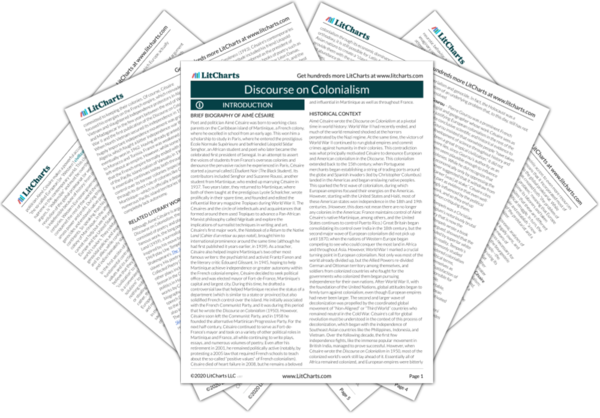Malagasy Uprising Quotes in Discourse on Colonialism
It is the destiny of the Occidental to face the obligation laid down by the commandment Thou shalt leave thy father and thy mother. This obligation is incomprehensible to the Madagascan. At a given time in his development, every European discovers in himself the desire … to break the bonds of dependency, to become the equal of his father. The Madagascan, never! He does not experience rivalry with the paternal authority, “manly protest,” or Adlerian inferiority—ordeals through which the European must pass and which are like civilized forms … of the initiation rites by which one achieves manhood…
(Come on, you know how it is. These Negroes can't even imagine what freedom is. They don't want it, they don't demand it. It's the white agitators who put that into their heads. And if you gave it to them, they wouldn't know what to do with it.)
And the striking thing they all have in common is the persistent bourgeois attempt to reduce the most human problems to comfortable, hollow notions: the idea of the dependency complex in Mannoni, the ontological idea in the Rev. Tempels, the idea of “tropicality” in Gourou. What has become of the Banque d'Indochine in all that? And the Banque de Madagascar? And the bullwhip? And the taxes? And the handful of rice to the Madagascan or the nhaqué? And the martyrs? And the innocent people murdered? And the bloodstained money piling up in your coffers, gentlemen? They have evaporated! Disappeared, intermingled, become unrecognizable in the realm of pale ratiocinations.












